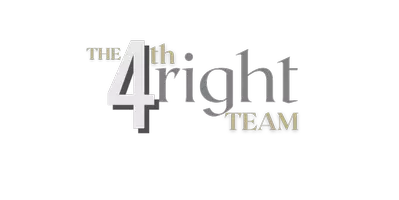What Credit Score Do You Really Need To Buy a House?
When you're thinking about buying a home, your credit score is one of the biggest pieces of the puzzle. Think of it like your financial report card that lenders look at when trying to figure out if you qualify, and which home loan will work best for you. As the Mortgage Report says:"Good credit scores communicate to lenders that you have a track record for properly managing your debts. For this reason, the higher your score, the better your chances of qualifying for a mortgage."The trouble is most buyers overestimate the minimum credit score they need to buy a home. According to a report from Fannie Mae, only 32% of consumers have a good idea of what lenders require. That means nearly 2 out of every 3 people don’t.So, here’s a general ballpark to give you a rough idea. Experian says:“The minimum credit score needed to buy a house can range from 500 to 700, but will ultimately depend on the type of mortgage loan you're applying for and your lender. Most lenders require a minimum credit score of 620 to buy a house with a conventional mortgage.”Basically, it varies. So, even if your credit isn't perfect, there are still options out there. FICO explains:“While many lenders use credit scores like FICO Scores to help them make lending decisions, each lender has its own strategy, including the level of risk it finds acceptable. There is no single “cutoff score” used by all lenders, and there are many additional factors that lenders may use . . .”And if your credit score needs a little TLC, don’t worry—Experian says there are some easy steps you can take to give it a boost, including:1. Pay Your Bills on Time Lenders want to see that you can reliably pay your bills on time. This includes everything from credit cards to utilities and cell phone bills. Consistent, on-time payments show you’re a responsible borrower.2. Pay Off Outstanding Debt Paying down what you owe can help lower your overall debt and make you less of a risk to lenders. Plus, it improves your credit utilization ratio (how much credit you're using compared to your total limit). A lower ratio means you’re more reliable to lenders.3. Don’t Apply for Too Much Credit While it might be tempting to open more credit cards to build your score, it's best to hold off. Too many new credit applications can lead to hard inquiries on your report, which can temporarily lower your score.Bottom LineYour credit score is crucial when buying a home. Even if your score isn't perfect, there are still pathways to homeownership. Let’s connect if you want to go over your options with an expert.
The Great Wealth Transfer: A New Era of Opportunity
In recent years, there’s been a significant shift in how wealth is distributed among generations. It’s called the Great Wealth Transfer.Historically, the transfer of wealth from one generation to the next was a more gradual process, often limited to smaller amounts of inheritance or family savings. But today, the scale has increased in a big way. As a recent article from Bankrate says:“The biggest wave of wealth in history is about to pass from Baby Boomers over the next 20 years, and it’s going to have major impacts on many facets of life. Called The Great Wealth Transfer, $84 trillion is poised to move from older Americans to Gen X and millennials. If it’s managed smartly, Americans will be able to grow their wealth and ensure their financial security.”Basically, as more Baby Boomers retire, sell businesses, or downsize their homes, more substantial assets are being passed down to younger generations. And this creates a powerful ripple effect that’ll continue over the next few decades. The graph below uses data from Merrill and Cerulli Associates to give you an idea of how much inherited money is set to change hands through 2045:Impact on the Housing MarketOne of the most immediate effects of this wealth transfer is on the housing market. Home affordability has been a concern for many aspiring buyers, especially in high-demand areas. The increase in generational wealth is expected to ease some of these challenges by providing future homeowners with greater financial resources. As assets are passed down through generations, buyers may find themselves in a better position to afford homes. Merrill talks about that benefit in a recent article:“While millennials face steep barriers . . . to buying a first home in many markets, ‘that’s a for-now story, not a forever story’ . . . The Great Wealth Transfer should enable more of them to become homeowners — or trade up or add a second home — either through inherited property or the funds for a down payment.”Impact on the EconomyBut the Great Wealth Transfer doesn’t just impact housing. It’s also going to provide a new avenue for entrepreneurial spirits to fuel economic growth. If someone is looking to start a business and they’re receiving funds like this, that money can used as the necessary capital to start a new company. This helps the next generation of innovators and business owners bring their ideas to life.Bottom LineWhile affordability remains a challenge in today’s housing market, the ongoing Great Wealth Transfer is poised to unlock new opportunities. As wealth is passed down and put to use, it’s expected to ease some of the barriers to homeownership and fuel other entrepreneurial endeavors.

Randy Richardson
Phone:+1(228) 547-9999




